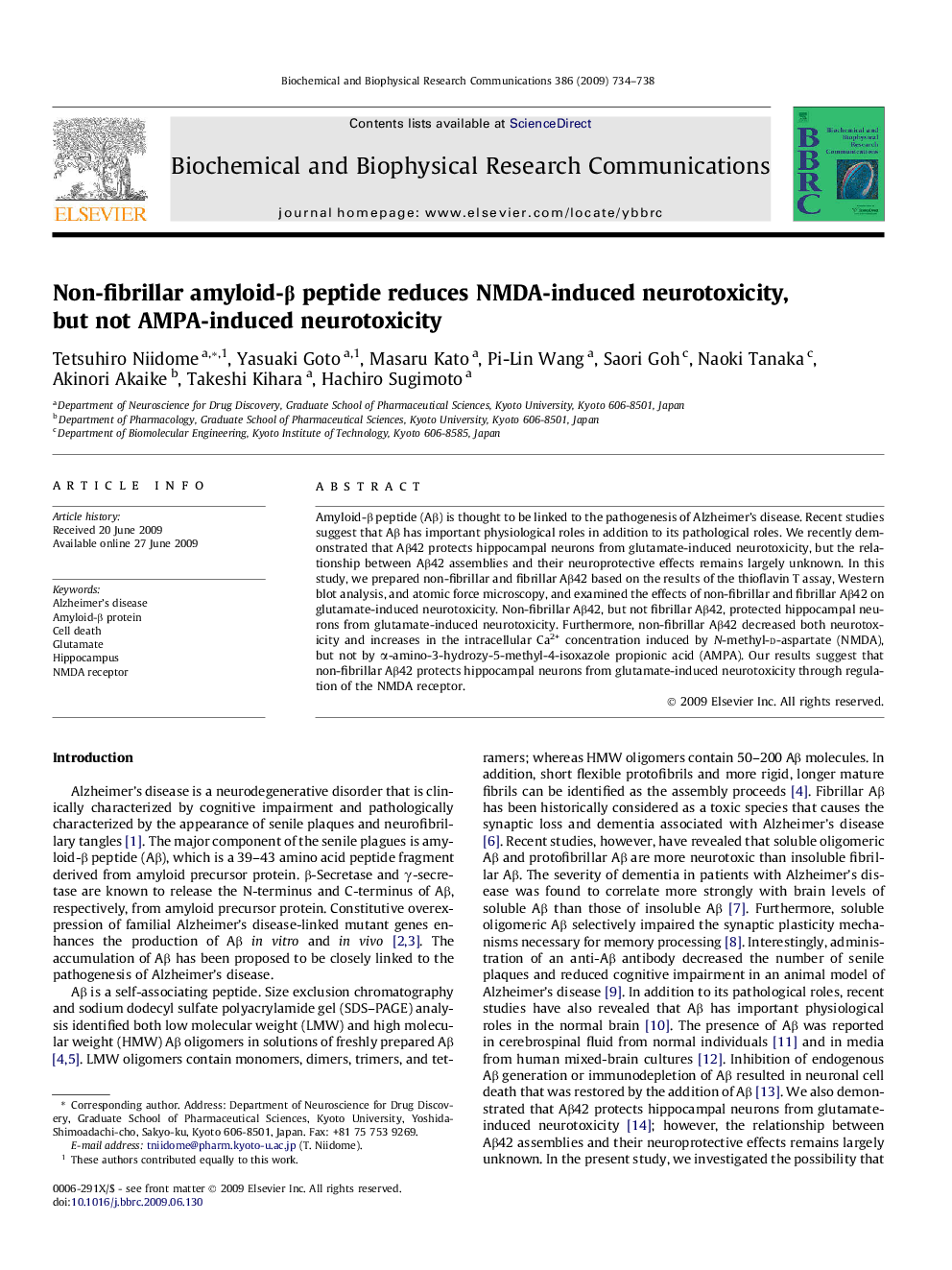| Article ID | Journal | Published Year | Pages | File Type |
|---|---|---|---|---|
| 10765795 | Biochemical and Biophysical Research Communications | 2009 | 5 Pages |
Abstract
Amyloid-β peptide (Aβ) is thought to be linked to the pathogenesis of Alzheimer's disease. Recent studies suggest that Aβ has important physiological roles in addition to its pathological roles. We recently demonstrated that Aβ42 protects hippocampal neurons from glutamate-induced neurotoxicity, but the relationship between Aβ42 assemblies and their neuroprotective effects remains largely unknown. In this study, we prepared non-fibrillar and fibrillar Aβ42 based on the results of the thioflavin T assay, Western blot analysis, and atomic force microscopy, and examined the effects of non-fibrillar and fibrillar Aβ42 on glutamate-induced neurotoxicity. Non-fibrillar Aβ42, but not fibrillar Aβ42, protected hippocampal neurons from glutamate-induced neurotoxicity. Furthermore, non-fibrillar Aβ42 decreased both neurotoxicity and increases in the intracellular Ca2+ concentration induced by N-methyl-d-aspartate (NMDA), but not by α-amino-3-hydrozy-5-methyl-4-isoxazole propionic acid (AMPA). Our results suggest that non-fibrillar Aβ42 protects hippocampal neurons from glutamate-induced neurotoxicity through regulation of the NMDA receptor.
Related Topics
Life Sciences
Biochemistry, Genetics and Molecular Biology
Biochemistry
Authors
Tetsuhiro Niidome, Yasuaki Goto, Masaru Kato, Pi-Lin Wang, Saori Goh, Naoki Tanaka, Akinori Akaike, Takeshi Kihara, Hachiro Sugimoto,
